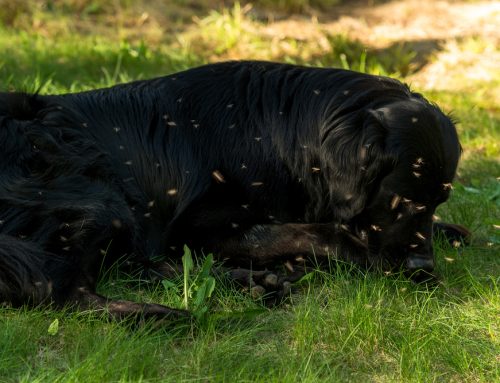February marks the official start of Pet Dental Health Month, but we feel like it is such an important topic that awareness shouldn’t just be restricted to a few weeks a year. So, instead, we’ll celebrate from now until March!
Your pet’s dental health care may be one of most important things you do to increase the quality and length of life for your best friend. Not only does proper dental care help your pet’s breath, it can also protect your cat or dog from the life-threatening impacts dental disease can have on your pet’s organs; including the heart, liver, and kidneys.
How Pet Dental Care Can Help
Not only can comprehensive oral exams help protect your pet from these life-threatening consequences, but it can also help with the following…
Bad Breath
When your pet gets plaque and tartar buildup on its teeth, bacteria thrives. Many of these bacteria produce sulfur as a by-product, resulting in a very unpleasant odor. Regular dental care can make those kisses much more enjoyable.
Early Disease Detection
When dental care is provided routinely, you are much more likely to recognize problems early. You or your vet may find retained baby teeth that can alter bite and accumulate tartar or find signs of non-dental problems in the rest of the body.
Decrease Pain and Discomfort
Dental disease results in the loosening of teeth in the socket. This can be extremely uncomfortable. Pets are not known for complaining, either, and most pets will show you no signs that they are in pain.
How Do I Know if My Pet Has Dental Disease?
Dental disease is the most common disease seen by veterinarians. In fact, 70-85% of pets over the age of 2 have some form of dental disease. Yet with regular preventative care, it is usually avoidable.
Symptoms of dental disease can include the following:
- Bad breath
- Excessive drooling (especially in cats)
- Yellow, brown, or discolored teeth
- Loose teeth
- Red, inflamed gums
- Swollen mouth, jaws, or gums
- Doesn’t play with chew toys as often
- Pain when eating
We Can Help
Every pet should receive routine oral examinations at the vet’s office, including periodic examinations under anesthesia, at least once a year.
Likewise, you should also take steps at home to complement your pet’s veterinary dental care. Look online or ask your vet to demonstrate proper tooth-brushing techniques for your pet and to recommend a pet-friendly toothpaste (never use human toothpaste). And be certain to ask about recommend products to enhance your pet’s oral hygiene, such as dental chews, foods, or rinses that may further contribute to dental health, too.
If you have any questions or concerns about your pet’s dental health, or if you’d like to schedule an appointment, please give us a call.







